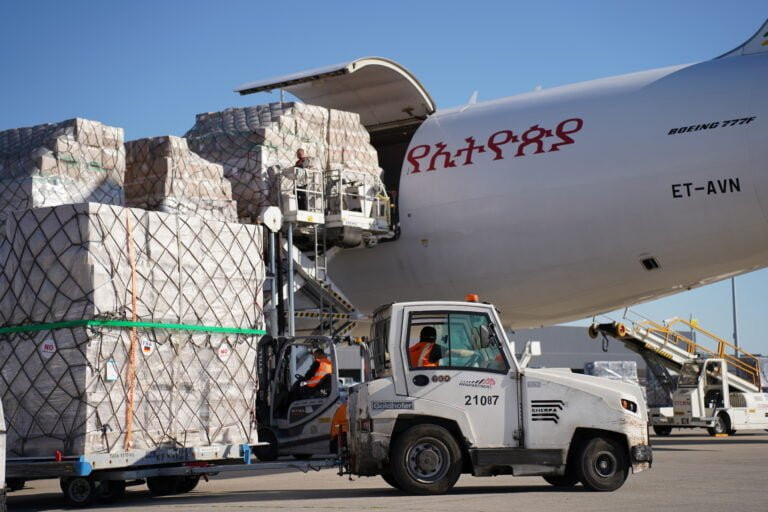Freighters play an important role at Belgium’s Liege Airport (LGG). Since the airport’s inception in the mid-1990s, air cargo has consistently been prioritised, providing an ideal foundation for hassle-free and high-quality cargo operations.
With its central location in the European “Golden Triangle” and unrestricted, fully flexible 24/7 operation, as well as strong infrastructure and handling services, the airport has transformed itself from a niche player to a European powerhouse in all-cargo traffic. Especially since LGG has been granted its environmental permit to operate until 2040 with limited restrictions, which support the growth of the airport.
This was reflected in traffic figures, with 2023 seeing LGG airport handle more than one million tonnes of aviation cargo and 25,000 freighter movements, placing Liege Airport as the fifth largest European cargo hub. Around 50 cargo airlines serve LGG on a scheduled or charter basis, and in 2023, about 435,000,000 e-commerce shipments passed via the hub.
Nowadays, freighter carriers can use the services of five first-line handlers and several second-line operators. There is 200,000 m² of first-line warehouse space available, including designated sections for processing perishables and pharmaceuticals, as well as the famed “Horse Inn” provides a 5-star horse service; with about 7,000 high-value horses passing through LGG every year.
“Liège may be an unpretentious, tiny city, but its airport is a huge deal. It is in the middle of the so-called Golden Triangle, which includes Amsterdam, Paris, and Frankfurt and handles two-thirds of all European freight,” Frederic Brun, Liege Airport’s Head of Commercial cargo and Logistics, said.
“Transporting more freight than either of Brussels’ two international airports, and ranking third in the country for passenger traffic.
“Liege Airport makes everything as simple and flexible as possible for its customers, and no other European airport has better access to motorways or a rail network.”
Operations and intermodality
With a focus on specific industries that are crucial to both airlines and freight forwarders, LGG sees potential in managing perishable items such as flowers, particularly when combined with e-commerce.
Speed is critical, and LGG is fortunate to have helpful authorities who operate around the clock, allowing us to clear and deliver fast to the ultimate hub. Belgium is well-known worldwide for its medicines, aerospace, and automotive industries, among other things. Some of the largest freight forwarders have also picked it as their EU pharma center, which adds legitimacy.
“The port of Antwerp-Bruges is the biggest general cargo port in the world, and LGG airport is located close to it via a unique network of rivers and waterways,” Brun highlighted.
“As diesel prices continue to rise, this subject arises again and again. I should emphasise that the port of Liege is the third largest inland port in all of Europe.
“In addition, “rolling highways,” or trucks transported by train, carry Asian commodities to Southeast Europe and beyond.
“All of this will make LGG a multimodal platform where all industry players, including freight forwarders, can combine, dispatch, and add value to their goods.
“We have partnered with all the other main logistics platforms in Belgium to promote this unique multimodal offer in the global logistics world.”




